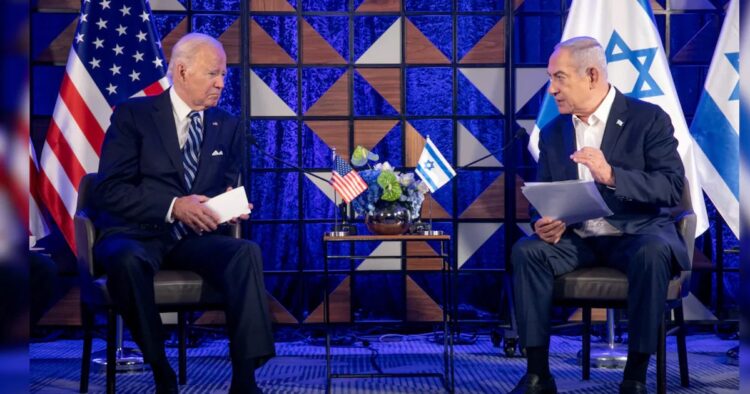Israeli Prime Minister Benjamin Netanyahu has called off a planned trip to Washington for his top aides Ron Dermer and Tzachi Hanegbi. This decision comes after the United States refrained from blocking a United Nations proposal for a ceasefire. The cancellation suggests growing tension between Israel and the US, as the latter did not veto the UN’s call for a ceasefire.
Originally, the delegation was scheduled to discuss Israel’s military operation in Rafah, a city in southern Gaza. However, with the US abstaining from blocking the UN resolution, the discord between the two nations appears to be worsening.
Israeli opposition leader Yair Lapid criticized Netanyahu’s decision, calling it “shocking irresponsibility” from a prime minister who seems to have lost control of the situation.
In a statement from Netanyahu’s office, the US’s abstention was described as “a clear retreat from the consistent US position in the Security Council since the beginning of the war.” The statement also suggested that US ‘inaction’ might embolden Hamas, the militant group controlling Gaza, to continue fighting without releasing Israeli hostages.
Netanyahu had initially agreed to send delegations to the US nearly a week ago, following an agreement with President Biden to discuss the Rafah operation. This conversation marked their first interaction in over a month. However, escalating tensions over the humanitarian crisis in Gaza have strained their relationship further, according to the White House.
The White House has expressed increasing concern over Israel’s military operation in Rafah, as the city has become a refuge for approximately 1.5 million displaced Palestinians. The UN ceasefire resolution, passed with a vote of 14-0, marks a significant departure from the US’s previous stance of dismissing such resolutions. It is the first time the UN has demanded a halt to the fighting.
Both sides had hoped to use the planned delegation trip to clarify their perspectives on the situation. However, with the cancellation and the US’s abstention from the ceasefire resolution, tensions between Israel and the US continue to escalate, raising concerns about the future of their relationship and efforts to achieve peace in the region.

















Comments